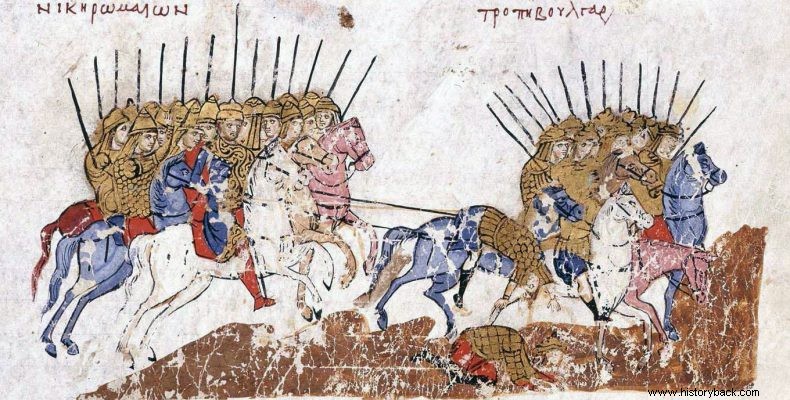
The Bulgarian ruler Samuel, who, like the Greek Alexander, is appropriated today by the people of Skopje, had led the Bulgarian army from success to success, in the war against the Byzantines, establishing, in 997 AD. the First Bulgarian Empire, of which he was named tsar.
The emperor of Byzantium Basil II, caught up in internal struggles against usurpers, but also against the Arabs, was not in a position, initially, to throw the weight of his forces against the Bulgarian threat. But soon that great emperor undertook a counter-attack against the Bulgarians, at the first opportunity.
In 1000 AD Basil carried out his first successful campaign against Samuel. However, new complications kept him stuck again, until 1003, when he again campaigned against the Bulgarians, with the aim of attacking Samuel in Western Macedonia. Initially, Basil with his army moved north, with the aim of capturing the city of Vidinio (today's Vidin), on the Danube. The heavily fortified city resisted for 8 months, but finally succumbed.
As a distraction, Samuel attacked Adrianople, in Eastern Thrace, but to no avail. True to his plan, after taking Vidin, Basil moved south along the Morava River, systematically destroying, one by one, the Bulgarian forts and fortresses. Finally the Byzantine army arrived near Skopje.
Samuel, after those defeats, could not allow the occupation of this city, which was the administrative center of his state. So he gathered his army in order to fight the Byzantines.
The Bulgarian army moved along the Axios and camped on the south bank of the river, not far from the city. The Bulgarians, believing that they were protected by the strong current of the river, did not take the appropriate safety measures.
Vasilios, however, was keeping vigil. The emperor had ordered his light cavalry to reconnoitre the area from end to end so that he would have an accurate picture of the terrain and the enemy. At one point the head of a returning reconnaissance patrol informed him that the Bulgarians had camped nearby, without taking serious security measures. Basil was also informed that a spring had been discovered from which the rushing Axios was passable for the army.
Immediately this great king gathered his forces and was the first to throw himself into the river, with the intention of surprising the Bulgarians. So it happened. The Byzantines moved like shadows and suddenly fell upon the careless Bulgarians, cutting them down by the thousands.
Frightened, Samuel fled, along with those of his horsemen who caught up with him. His infantry was neutralized, almost in its entirety. the victory was great, being a prelude to the catalytic battle of Cleidis, 10 years later.
